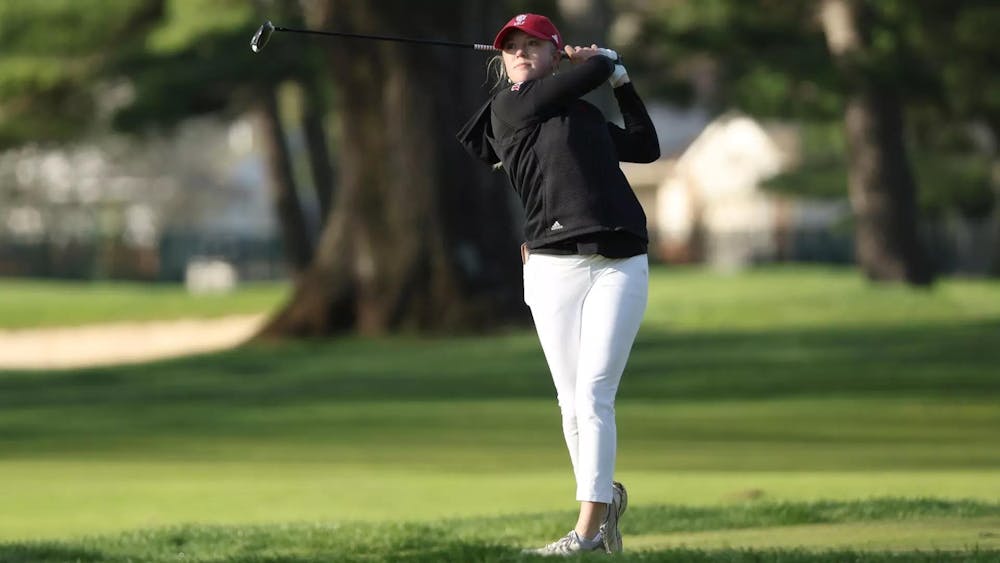According to the National Science Foundation’s 2006 demographic data, despite making up 24 percent of the total U.S. population, Native Americans, Hispanics and African-Americans comprise only 10 percent of the college-educated individuals employed in science and engineering occupations.
In an effort to change current demographics, IU will hold the ExxonMobil Bernard Harris Summer Science Camp, allowing middle school students from the underrepresented segments of the population to learn about math and science while being exposed to a college atmosphere.
From July 11 to 23, students entering grades six, seven and eight will attend the camp free of cost. Fifty-four students were selected based on their strong grades in science and math courses, overall good conduct, recommendations from teachers, an admission essay and overall interests in the science, technology, engineering and math disciplines.
Edwin Marshall, IU vice president for Diversity, Equity, and Multicultural Affairs, said in a University press release that exposing youth to the STEM disciplines during the time period before high school is critical.
“We must commit to educating our youth in the STEM disciplines in early grades to engage and retain student interest in these disciplines through college and career exploration and development,” Marshall said in a press release. “The IU camp represents a substantial continuing commitment to helping students pursue science and math careers.”
In an IU press release, Rex Tillerson, chairman and chief executive officer of Exxon Mobil Corp, said ExxonMobil shares in the passion math and science education that the camp displays.
“These camps help students explore beyond their horizons to encourage a life-long love of math and science and a better future,” he said in the release.
The theme for this year’s camp is “Understanding Sustainability from the Ground Up: The World of Water.”
“Water sustainability is an important topic because it is important to everyone — it’s an area students often do not realize the importance of,” IU Camp Program Director Paul Edwards said. “The theme also allows for IU’s natural resources to be utilized through a number of activities, including collecting water samples from Lake Griffy and the Jordan River.”
Along with outdoor excursions, students will attend daily classes and labs in natural sciences, engineering and technology taught by secondary classroom teachers. Some students will even have the chance to visit the water processing facility, United Water, in Indianapolis.
Over the last four years, 4,000 middle school students have participated at 30 universities and institutions across the country in the summer science camp program started by Bernard A. Harris Jr., the first African-American to walk in space and the president of the Harris Foundation, to help students with backgrounds similar to his.
According to the Harris Foundation’s website, Harris began the nonprofit organization in 1998 “to develop math/science education and crime prevention programs for America’s youth.”
The summer science camp program was originally developed as a collective effort of the foundation, the Houston Independent School District, the University of Houston and the Southwestern Oklahoma State University and was designed to support historically underserved and underrepresented students with limited opportunities.
“This year’s summer science camps will give students a chance to learn about mathematics and science, more about themselves and about life on a college campus,” Harris said in a University press release. “Most importantly, campers learn that they have the power to achieve their dreams, whatever they may be.”
Rene Flores, national director of the Summer Science Camp program, shares Harris’ passion for encouraging students to explore new educational opportunities.
“It is impossible to aspire to something you have never been exposed to,” Flores said. “On the first day of camp, the opening speaker asks campers to stand if this is their first time away from home, and the number of students who stand up is incredible.”
Flores said the program is successful because the camp leaders treat the campers like actual university students.
“They gain new independence, accountability, and even begin to picture themselves as college students,” she said. “Also, the experience does not end on the last day of camp. We continue to stay in contact and make sure past campers keep up with their goals through high school.“
Two-week camp to help students pursue science
Get stories like this in your inbox
Subscribe





